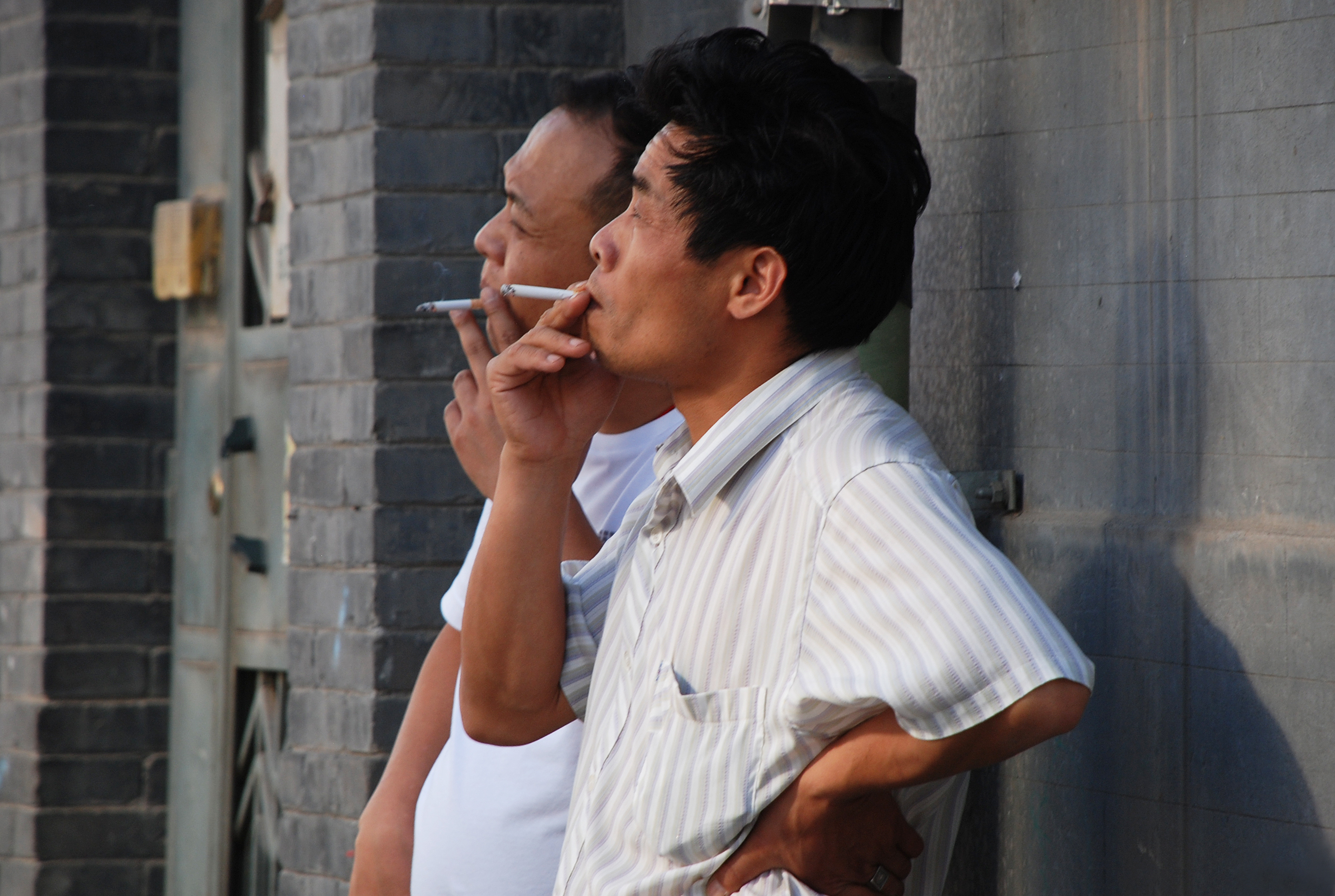The above video is an English translation from Mandarin.
“In all of public health, all around the world,” Pulitzer Center grantee and The Examination correspondent Jason McLure said, “the thing that could be done that would have the greatest impact on the greatest number of people’s [health...] is to rein in China’s tobacco industry.”
McLure joined Jude Chan, a correspondent for Chinese-language Initium Media, for a virtual conversation about the Pulitzer Center-supported project Smoking for the State, in Mandarin and English. Lulu Ning, Editor in Chief of Initium Media, moderated the discussion.
A collaboration between Der Spiegel of Germany, The Examination of the United States, and Initium Media of Singapore, Smoking for the State unspools a web of private, public, and eminently political interests weighing the lives of hundreds of millions of Chinese smokers against billions of dollars in revenue.
According to The Examination, “under the name of its regulatory alter ego, the State Tobacco Monopoly Administration, China Tobacco [the state-owned tobacco company] governs the entire supply chain from offices in cities small and large in every corner of China.”
“China is the country that suffers most from the tobacco epidemic,” McLure emphasized.
Nearly half of adult men smoke in China. China Tobacco produced more cigarettes in 2022 than the next 13 largest tobacco companies combined, according to McLure. The Chinese buy 46% of all cigarettes sold on Earth.
Chan discussed in detail how China Tobacco gamed tax regimes and regulations to move profits up the value chain, away from farmers in rural, southeastern provinces like Yunnan.
“Tobacco control policies focus on the demand side.” Chan said it “may be due to China Tobacco’s monopoly.” Tobacco farmers harvest and cure leaves by hand, a labor-intensive process. They face health problems resulting from exposure to high levels of nicotine. Tobacco farmers make “meager [and declining] profits,” but nonetheless fear losing their livelihoods to tobacco control regulations.
China Tobacco sales taxes make up an estimated 7% of the State’s total revenue, about as much as China allocates for its public defense budget each year.
“China’s [...] turn towards [...] authoritarianism has made it even more challenging to counter the power of China Tobacco,” according to The Examination. “Critiquing the company, after all, is by extension a direct criticism of the Chinese government.”
Increasingly, foreign non-governmental organizations (NGOs) helm tobacco control measures that attempt to bring China in line with the WHO Framework Convention on Tobacco Control. And, increasingly, they face obstruction.
As both a “manager and an operator of the tobacco industry,” according to Chan, China Tobacco bankrolls dubious “counterproposals” to the WHO’s Framework. They also peddle low-tar cigarettes, a nostrum popularized by Western tobacco companies in the 1970s and 1980s.
McLure pointed out that governments in the West had long been cozy with Big Tobacco. “An enormous part of the picture is the role of civil society and anti-tobacco groups in cutting smoking,” he said. “That’s really the difference in smoking between Germany, Japan, and China.”
“Demormaliz[ing] smoking,” according to McLure, would go a long way. Chinese people often gift high-grade tobacco cigarettes during special occasions, just one way in which tobacco glues Chinese social life.
McLure thanked Initium: “Without the work of many different collaborators inside and outside China, we never would’ve been able to report.”
This was the Pulitzer Center’s first Mandarin-English simultaneous translation webinar. Thank you to Blu Translation Services and Lulu Ning for your support.
The video below is in the panelists' native languages, Mandarin and English.




